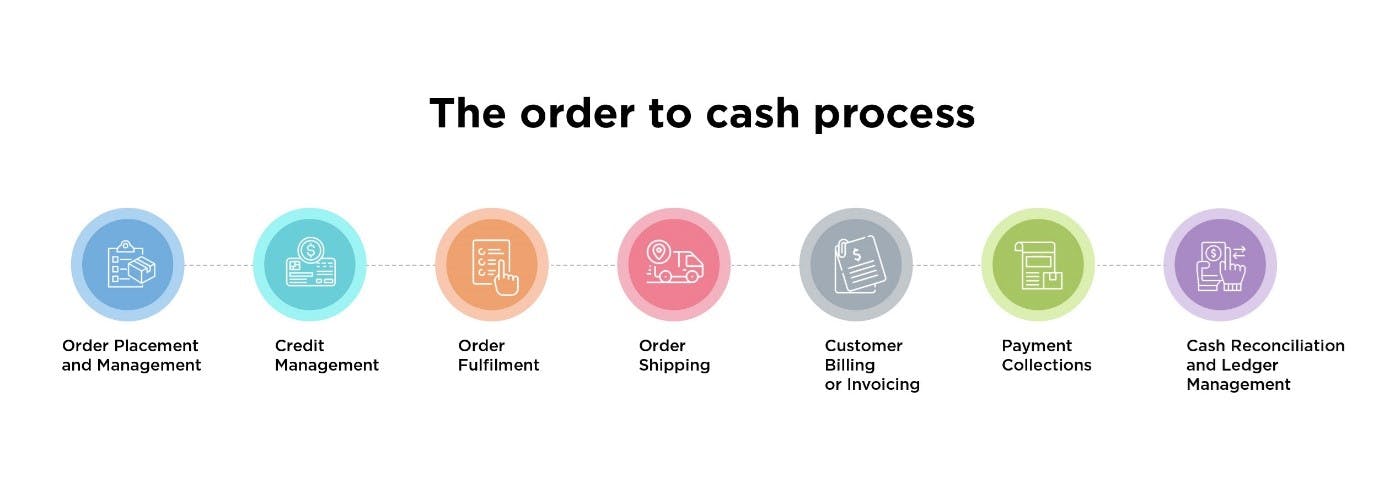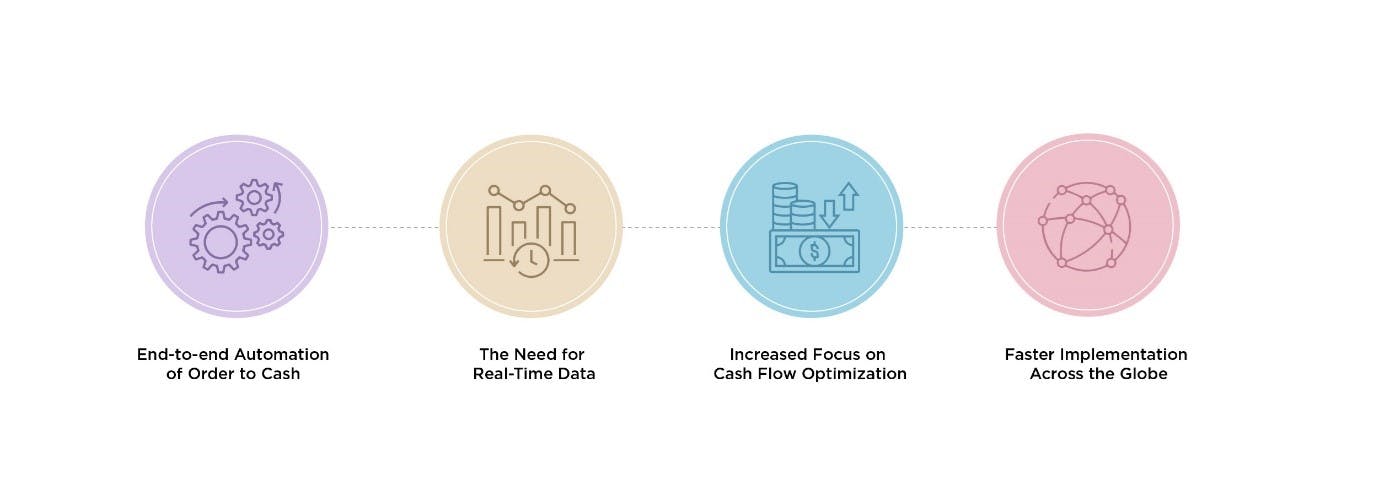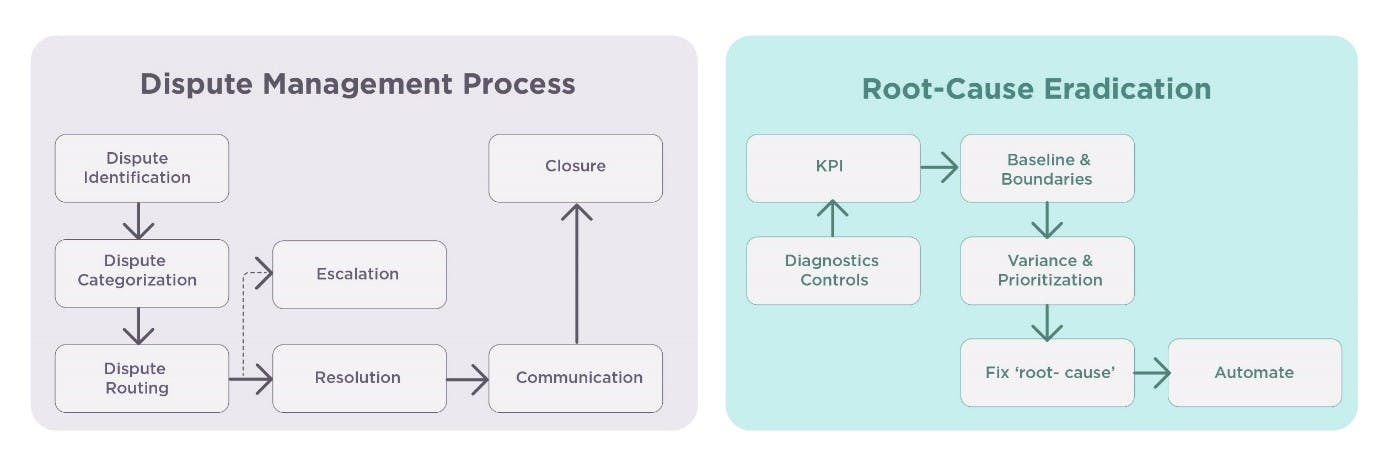Order to Cash value is the only organic means for a business to generate cash for the business and managing it efficiently can impact and improve both customer and financial operations of a company. A well-managed Order to Cash (OTC) process can also provide necessary funds to not only manage existing operations but can also provide an impetus to grow the business making optimization of the process a hot button topic for CFOs.
One of the most important tools that a business can use to optimize their Order to Cash value chain is Dispute management. It not only releases the cash trapped in operations but can also help to identify ‘root-causes’ of process breakdown that impact the efficiency of O2C value chain. With research indicating (do we have source? Would be powerful) that working capital optimization can result in over $20-60M in annual benefit for every $1B in revenue, the importance of a good and robust dispute management process and analytics become critical for a business.

Given the global nature of business and cross functional nature of O2C process, the volume of data can make it difficult to manually sift through large volumes of data. Artificial Intelligence (AI) and Machine Learning (ML) solutions provide a systematic approach to help organization identify potential risk areas and prioritize them, to maximize the ‘cost benefit’ of process changes and transformation. With a strong focus on bettering the customer experience, these adaptable solutions are a true gateway in achieving success across the OTC cycle while improving companies’ abilities to eradicate or mitigate disputes and improve the bottom line.
Driving Transformation with AI and ML
With trends progressing and needs shifting, the requirements of effective OTC dispute management continue to grow. As mentioned, the order to cash cycle process is subject to a variety of challenges that must be overcome to achieve proper optimization.

Image: Trends in OTC Process
OTC platforms are filled with a large number of data assets, with traditional reporting and analytical methods simply not being able to provide the amount of insights needed to improve the process. While advancements in AI and ML can make this data more accessible, it is important to note the core challenges first and foremost.
These challenges include:
- A Lack of Actionable Insight Gathering: In the case of most companies, large amounts of transaction data is not used to gather any insights. This data remains in business siloes across various departments, with the process of gathering actionable information from them being a rigorous manual process that often leads to oversights that could hamper dispute management processes in the long run.
- Understanding Dispute Analytics: Having a clear understanding of why invoices are disputed is important in preventing slowdown of the entire OTC process. Traditional reporting methods and analytical practices often times miss out on certain factors or drivers that can inevitably lead to disputes escalating into bigger issues.
- Streamlining the Collections Process: In a variety of situations, identifying the factors that lead to delayed or unpaid invoices becomes difficult for collection teams when relying on manual identification methods. Without more accurate predictors in place, outstanding invoices can pile up, along with poor debt remediation.
- Emphasis on Resolving Disputes: Business often emphasis on resolving the customer dispute (cases) quickly with limited focus on ‘root-cause’ eradication. The lack of diagnostic controls and KPIs results in the same disputes arising repeatedly.
Artificial intelligence and machine learning: Salvaging Dispute Management
Artificial intelligence and machine learning solutions have proven their worth in being able to accelerate business processes and improve overall efficiency. With the help of AI/ ML based Diagnostic Controls and KPIs these tools can help to identify and eradicate ‘root-causes’ for disputes which helps to streamlined business processes that can be digitalized and automated giving benefits of reduced costs and errors. Rather than being reactive to dispute management issues, these solutions will allow companies to be proactive in their efforts, thus heavily mitigating risks that could affect the entire value chain.

Analytics is at the heart of dispute resolution, and using AI to determine the root causes behind these disputes is crucial in enabling timely mitigation. Automated process mining is an effective way in understanding invoicing issues. This comprehensive, fact-based approach generates data that identifies inefficiencies in dispute management processes and their causes on a far deeper level than manual mapping would have, which helps to avoid or mitigate tie ups with disputed invoices.
Pattern recognition and predictive ML models will help accounts departments effectively identify customers who pose the greatest risk of either defaulting or delaying their invoice payments. This will therefore allow collection teams to effectively prioritize higher risk candidates to prevent poor debt build-up. AI-enabled machine learning capabilities can sift through vast amounts of operational data and accurately determine potential collection risks and even more severe threats such as payment frauds.
Finally, with customer-centric models being a guiding focus for successful OTC flows, AI-based dispute resolution is more quickly able to adapt to changes in cash flows, client habits and spending patterns, which can lead to personalization across multiple avenues. The “intelligent data” creates insights that can foster better cash flow predictions and lead to more effective dispute management that is based on comprehensive understanding of customers and the environment.
To achieve the goal of an optimized and well running OTC platform, dispute management must be given its due importance. Fortunately, the technological boon of AI and ML solutions have given CFOs and their companies the tools they need to keep their capital up and drive value across the length of their OTC cycles.

